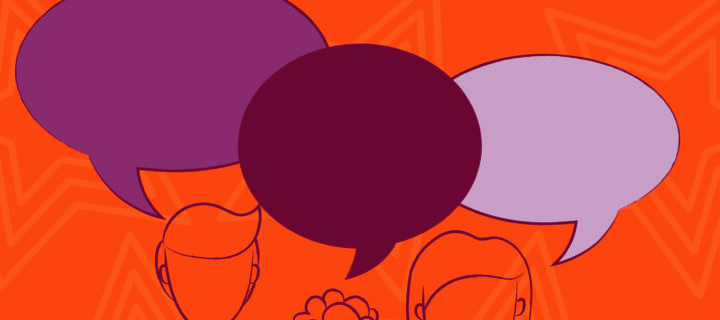By Devjani (Juni) Banerjee-Stevens, PhD
Psychologist and Owner of Deer Park Counseling & Consulting
When I signed up for this parenting gig, I was excited to teach my kids about everything that sparked a sense of wonder in me. What makes the sky blue? How many stars are there in the universe? What is it about that song that makes me feel so emotional?
I also know there was a part of me that hoped that I could outsource the harder questions. Why do people die? Why do people hurt people? What is racism? Am I safe?
In spite of all of my efforts to fix the world before my kids realized it wasn’t perfect, they figured it out. Now, in the wake of the deaths of Ahmaud Arbery, Breonna Taylor, George Floyd, and countless other brothers and sisters, I know I need to step up my game and learn how to talk to my kids about those things we want to shield them from. In the summer of 2020, it’s racism.
Step One in this process? Face my fears. Here are a few of them:
Talking about racism, especially anti-Black racism, will just make it worse. It makes sense, right? If we just pretend a problem doesn’t exist, it will go away. Yeah, no. As a counseling psychologist, I have spent many hours helping clients identify the people who hurt them so that they can learn to move through that pain and maybe even forgive those who betrayed them. It’s no different on a larger scale. By understanding the history of how Black, Indigenous, and other People of Color (BIPOC) have systematically been discriminated against, we can grieve the losses of our ancestors, break cycles of abuse and trauma, and become better ancestors for our great-great-grandkids.
My kids are too young to understand this racism stuff. Talking about it will hurt them. It may be true that your kids may not understand discrimination based on race, but they do see differences. Studies show that babies as young as three months recognize racial differences. It’s not a problem until kids start receiving problematic messages from the media, their families, and role models in their lives that some races are superior to others. Once that happens, kids learn to judge those differences and not always fairly. This “learned judgment” creates bias. When adults avoid talking about our country’s history of systemic violence, specifically against Black people, our kids grow up unaware of how their own biases might be hurting other people. When kids unconsciously absorb the lie that all people are not equally deserving of dignity, they may become business owners, teachers, and community leaders who unintentionally repeat similar patterns of discrimination.
Racism doesn’t affect me or anyone in my family, so I think I’m good. My parents immigrated from India in the 1960s, and they provided a very safe and comfortable life for my sister and me. For most of my life, I wanted to believe that racism didn’t affect me, my parents, or any of my mostly White friends. My dad, especially, loved being an American, and I listened in awe as he told stories about his childhood in India and why he made the difficult decision to leave his family for more opportunities in the USA. When I would tell my friends about the history of British Colonialism in India, they often would say, “Why didn’t we learn about any of this stuff in school?” I’ve been feeling the exact same way when I learn something new about Black history—a long history of tragedy and triumph in America. Why didn’t I learn this stuff, and why aren’t we teaching it to our kids? This is how racism hurts all of us. When we don’t know our own history, as well as the history of the people around us, we deprive ourselves of knowledge that can make us better people.
I know that both of my parents had to leave huge pieces of themselves behind when they moved here, and that affected how they parented me. As a therapist, I encourage clients to explore all parts of their history—the good, the bad, and the ugly. When we know our history, we can integrate it into our hopes and dreams for the future, and we are all the better for it.
This is just too overwhelming. Where do I begin? I know. It is a lot. The great news is that there are many BIPOC who have been writing and speaking for years about how to do “the work” of anti-racism. If you search, “How to Raise an Anti-Racist Kid,” you’ll find numerous resources to read, watch, and listen to. I know that the best way for me to learn is to huddle up with my most trusted friends. You know—those friends who will tell you the truth even when you don’t want to hear it? Starting a book club, or even a discussion group around race can give you space to talk openly and honestly about your own fears and concerns. You’ll probably learn that others have those same fears, and that they also want to make some meaningful changes.
Still not sure where to start? Here are a few steps you can take today:
If you have young kids, look at the books, toys, and media that you have in your house. Do they tell the stories of people from backgrounds that are different from your own? Look for stories that are told from the perspective of Black, Indigenous, and People of Color and are written by BIPOC authors. The Center for Racial Justice has compiled a fabulous list of resources for kids and adults of all ages (https://centerracialjustice.org/resources/resources-for-talking-about-race-racism-and-racialized-violence-with-kids/).
For older kids, ask them to research the original inhabitants of the land where they’re living right now. What were the names of the Indigenous tribes in their area? How might your kids learn more about the current experiences of members of these tribes? Older kids also can take a virtual tour of the National Civil Rights Museum on YouTube.
For families, talk to your kids’ teachers, principal, and superintendent about your desire to see a more diverse curriculum. Get together with a few other parents and write a letter to the school administration about changes you would like to see.
As for you, be gentle with yourself. Whether you are raising Black, Brown, White, or multiracial children, talking about race can bring up distressing emotions. If you feel angry, sad, confused, or surprised, you’re doing it right. All of these feelings are signs that you’re growing and making a commitment to creating a more just world for all of us.






